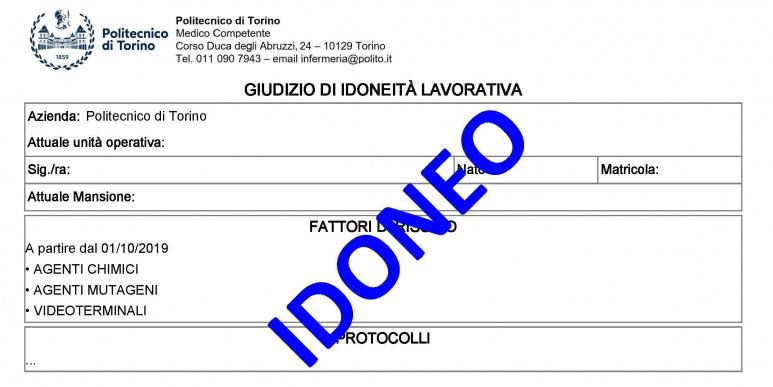
Health surveillance is the set of health assessments carried out by the Occupational Physician to protect the health of workers, in relation to their health conditions, work environment, specific tasks and possible risks.
All workers professionally exposed to one or more risks are subject to health surveillance.
Health surveillance includes:
- Preventive medical examinations, aimed at ascertaining the absence of contraindications to the performance of the activity for which the worker is intended;
- Periodic medical examinations, useful for verifying the health of workers exposed to risk over time;
- Medical examination upon change of duties, if the change of duties also involves a modification of professional exposure;
- Medical examination upon termination of employment, only in cases specifically provided for by regulations;
- Medical examination prior to resuming work, carried out by the Physician to verify the worker's health conditions after a sick leave of more than 60 consecutive days;
- Medical examination at the worker's request, if deemed justified by the Occupational Physician.
The objective of health surveillance is obtain the authorization of the Occupational Physician for specific duties assessment, which can result in:
- Full fitness for specific duties;
- Partial fitness for specific duties, temporary or permanent, with prescriptions or limitations;
- Temporary unfitness;
- Permanent unfitness.
The fitness for specific duties assessment, in addition to being delivered in copy to the worker, is also sent to the Employer and the Manager, who, in the case of partial fitness or unfitness, must take action to modify the worker's activity, in order to comply with what has been defined by the Doctor.
Finally, it should be noted that the fitness for specific duties examination is an obligation for the worker, as provided by Article 20, paragraph 2, letter i) of Legislative Decree 81/08 and subsequent amendments.